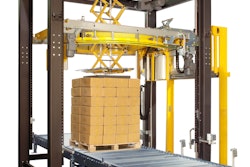Davos-Klosters, Switzerland—Jan. 25, 2013—Business and governments are increasingly concerned about the lack of resilience that exists in global supply chains, according to new findings from the World Economic Forum’s (WEF) “Building Resilience in Supply Chains” report. An initiative of WEF’s Risk Response Network, in collaboration with Accenture, the report revealed that 80 percent of companies worldwide see better protection of supply chains as a priority, given the persistence of external threats and vulnerabilities such as oil dependence and information fragmentation.
“Improving cooperation on risk and resilience remains a hard thing to do but is particularly important for supply chains, as they are a critical and strategic part of national infrastructure,” said Sean Doherty, Director of Supply Chain & Transport Industry, World Economic Forum.
Top supply chain risks identified in the report by corporate and government executives included:
- Conflict and political unrest
- Natural disasters and extreme weather conditions—such as the effects of the floods in Thailand in 2011 and 2012; and of Super Storm Sandy, which closed ports and airports in the north-eastern U.S. in November 2012 and prompted localized fuel rationing
- Cyber risk and rising insurance and trade finance are emerging areas of concern
The report calls for four steps to help integrate resilience thinking into supply chain management:
- Institutionalize a risk assessment process rooted in a broad-based and neutral international body
- Mobilize international standards bodies to develop and harmonize the adoption of resilience standards
- Incentivize organizations to follow agile, adaptable strategies to improve common resilience
- Expand the use of data-sharing platforms for risk identification and response
The report also pinpointed notable differences in perspectives that stem from government responsibility for public security; and long-term risks compared to industry’s focus on ensuring that supply chains work effectively on a day-to-day basis. Differences in regional perspectives—attributed to local experiences with supply chain disruption and growth expectations—underscored the need to develop a harmonized resilience framework supported with common supply chain standards.
To help government, industries and consumers cooperate, the report calls for a common risk vocabulary, improved data and information sharing along and between supply chains, and more flexible response strategies.
“Global supply chains face a broad range of risks, from natural disasters and extreme weather to economic uncertainties and the emerging threats like cybercrime,” said Sander van ‘t Noordende, Group Chief Executive, Management Consulting, Accenture. “These become more challenging as supply chains become longer and more complex. However, adaptable organizations using robust analytical capabilities can help inform management and facilitate rapid responses to their changing environment.”












